Postcard from Switzerland: Future-proofing Logitech
Teaming up with grad students in Zurich to keep Swiss tech firm on bleeding edge
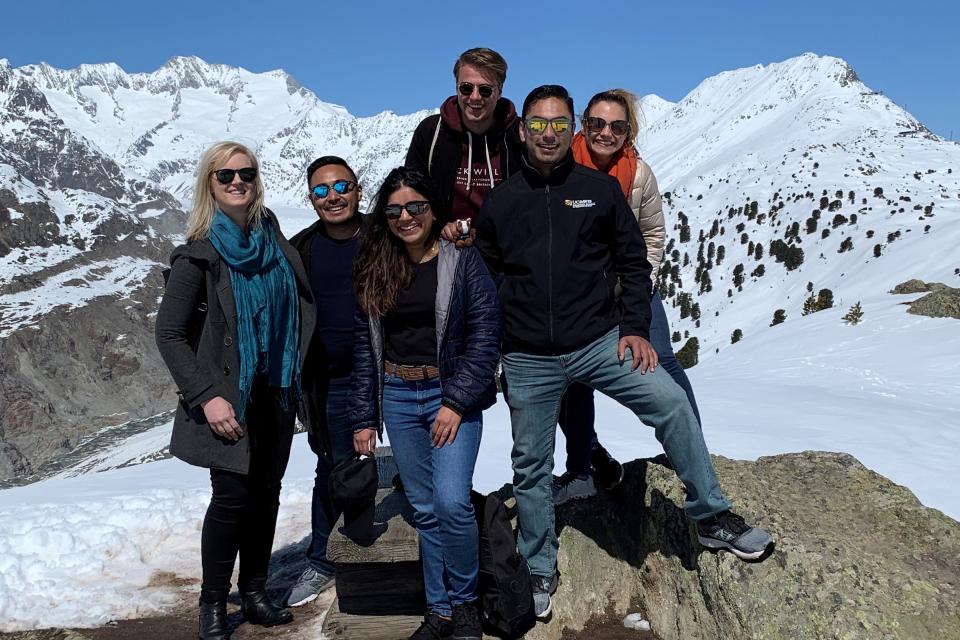
UC Davis MBA students and grad students in Zurich strategize with their global partners at Logitech to keep the company on the forefront of digital innovation.
A world leader in consumer technology for digital experiences, Logitech has grown into a nearly $3 billion-a-year global business spanning computing, communication and entertainment.
What’s next for this innovator?
That’s where our team entered the picture. We took on this formidable client business case for our Integrated Management Project capstone course this spring quarter.
Headquartered in Lausanne, Switzerland, Logitech has been at the forefront of digital innovation and cross-sectional branding for nearly four decades. It’s best known for personal computer and mobile peripherals—including computer mice, webcams, video conferencing equipment, keyboards, remote controls, speakers and smartphone accessories.
After several weeks researching, analyzing and working closely with Logitech managers, we packed our bags for a student experience of a lifetime in Switzerland.
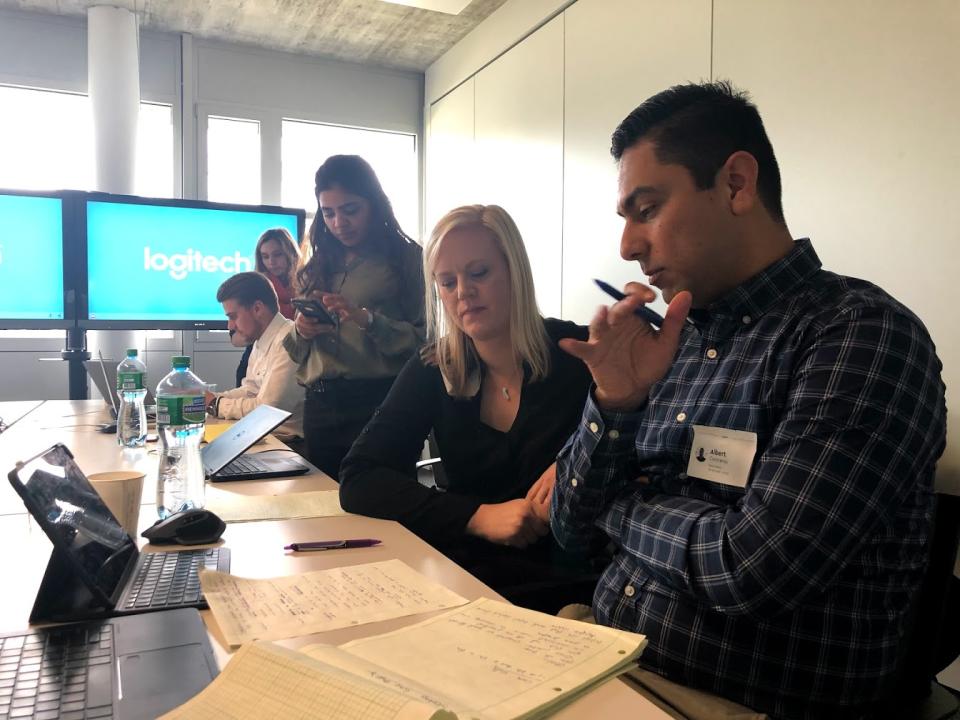
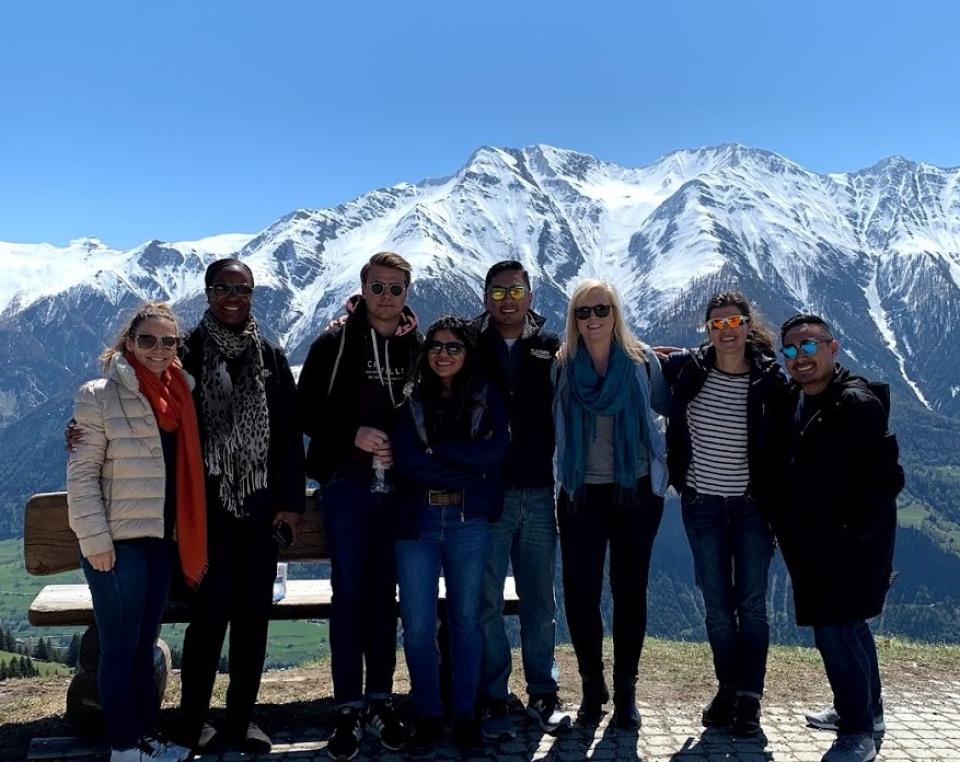

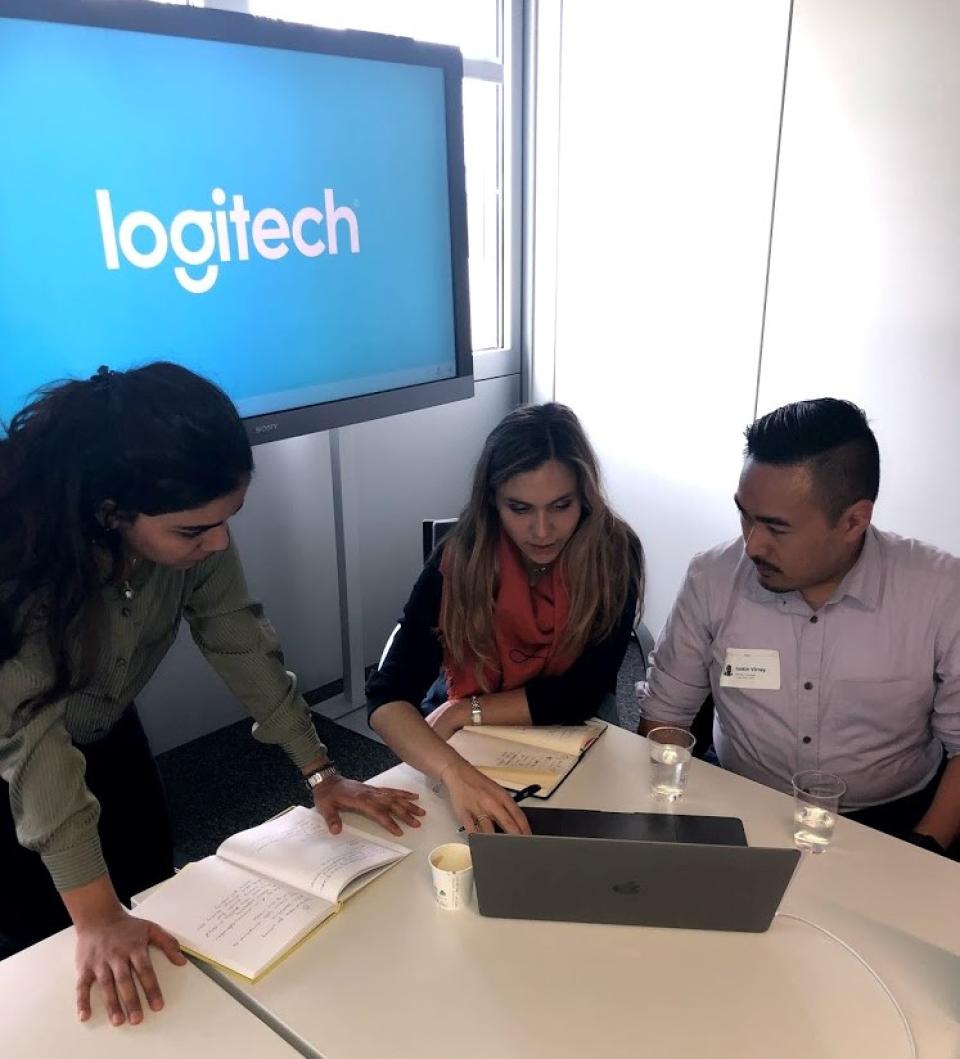
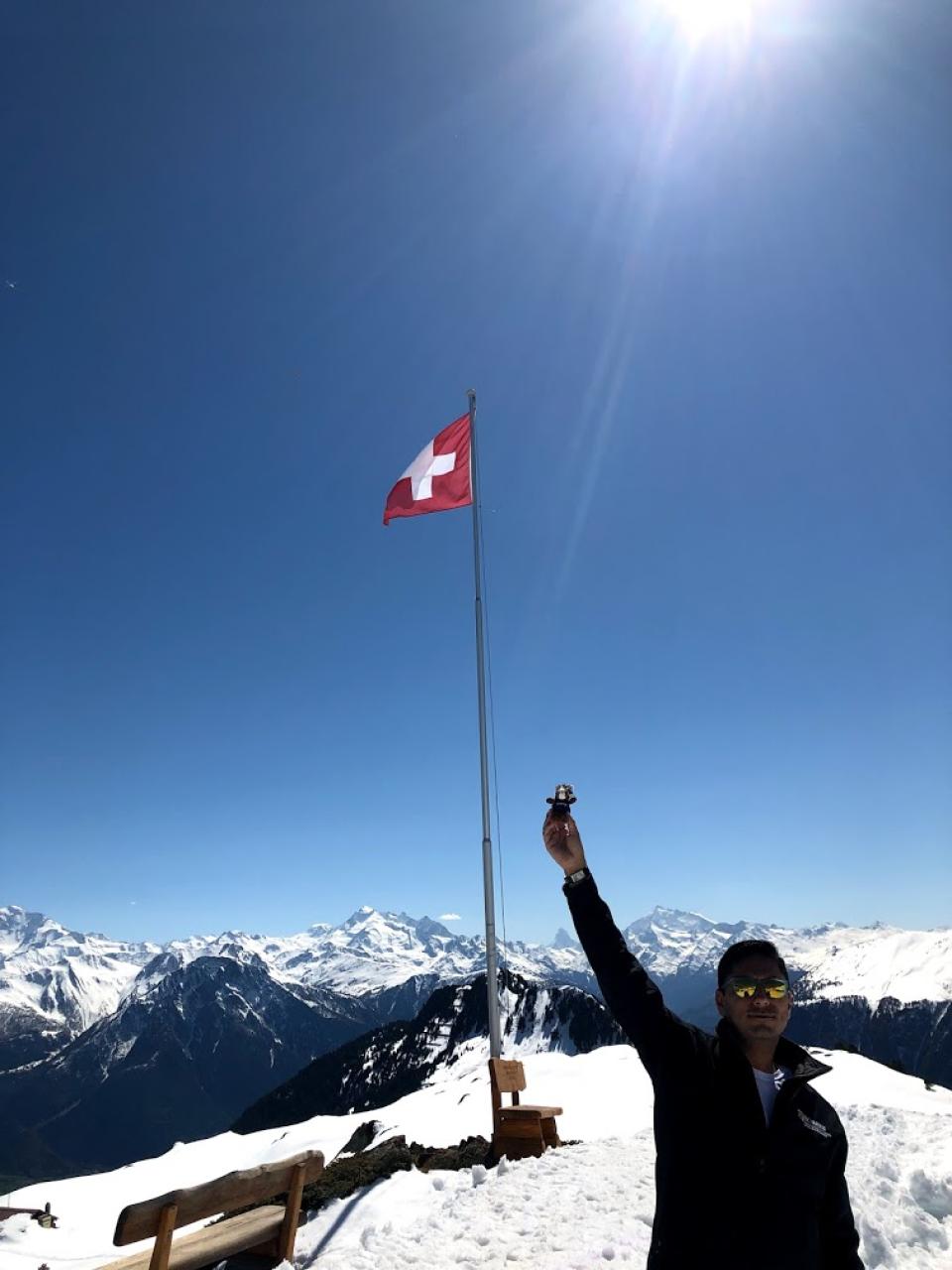
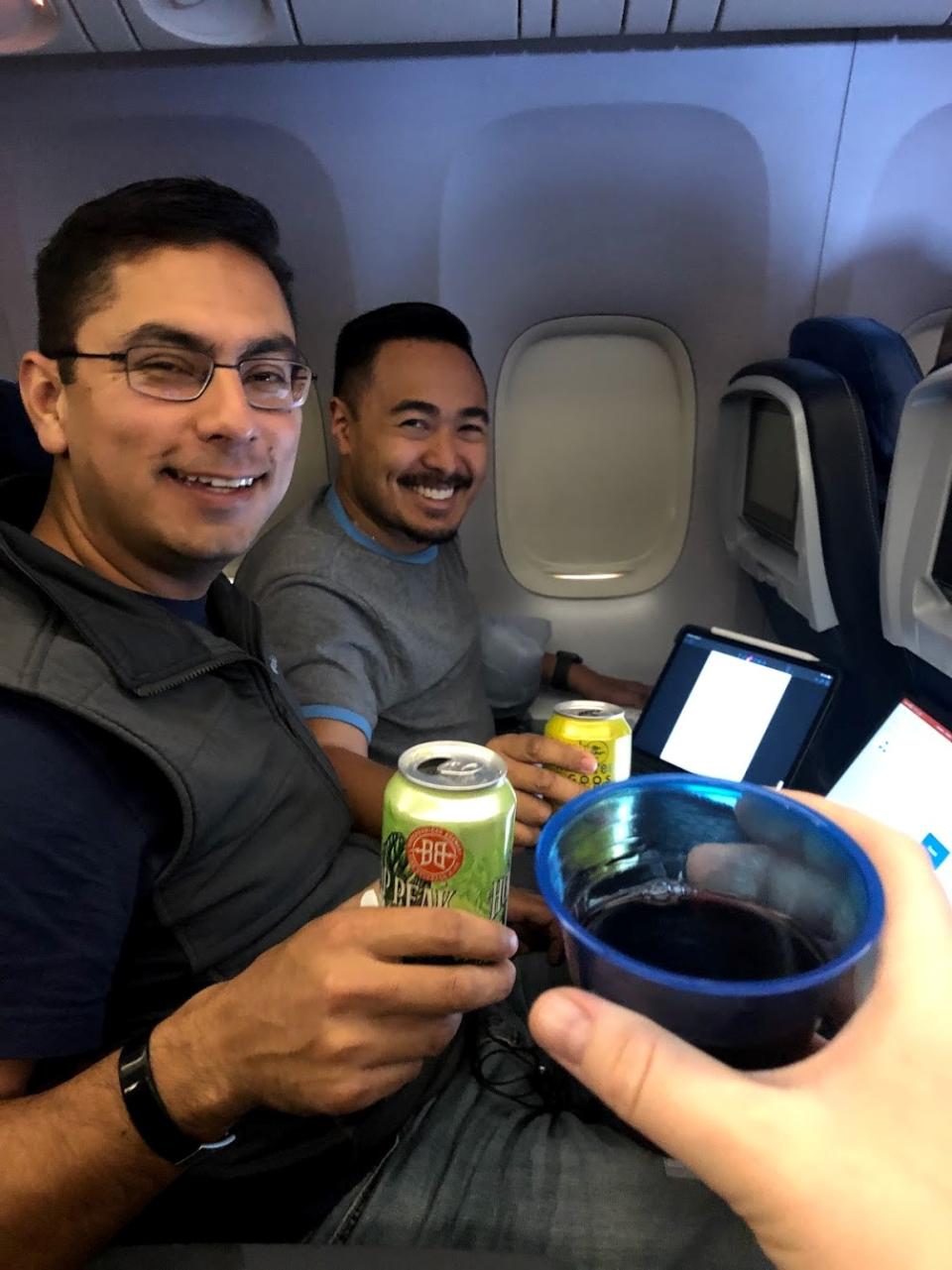
Wheels Up For Switzerland
Soon after taking off from Sacramento in late April, we popped a laptop and passed it around the plane, continuing to refine our interim presentation.
During a layover in Washington, D.C., we took time out to reflect on our work. The long hours strategizing, debating and laughing together over the past several weeks had forged us into an effective consulting team—though we had yet to meet our other half.
After a quick dinner, we boarded our flight to Zurich and got some much-needed shut-eye over the Atlantic.
Our project partners, three talented graduate students from the Zurich University of Applied Sciences (ZHAW), greeted us warmly at the airport. Aurélie Wettsetin, Rachana Soni and Yannick Minder are international business students in the ZHAW School of Management and Law. We had collaborated virtually via countless Zoom video sessions, so it was great to shake hands for the first time. With all six of us finally together, we made our first important gut decision: Where do we get some good Swiss food?
Prepping Our Pitch
We arrived the day before our interim presentation at Logitech’s global headquarters in Lausanne. There, we hunkered down with our Swiss colleagues to merge our presentations and practice presenting. We burned the midnight oil with a single objective: impress company executives.
“We had spent the last quarter working as consultants, and this was our first in-person chance to deliver organizational recommendations.”
Despite our jet lag, fatigue, and having overcome many differences and obstacles, our Euro-American team synched as an international consulting unit.
On pitch day, Logitech leaders listened intently to our insights for staying on the bleeding edge of digital innovation. With market demand for new and more engaging digital tools and products, how can Logitech stay ahead of the curve?
Logitech senior leadership shared pertinent feedback that guided us through our second phase of research. Their advice will help us hone our final presentation to senior managers at the company’s North American headquarters in Silicon Valley later this month.
Our Final Sprint
Despite some natural growing pains along the way, our U.S.-Swiss student team produced an incredible amount of work in a short amount of time—and we made new friendships.
Our collaboration continues as we expand on our ideas to prepare to give our final presentation just down the highway in Silicon Valley.
Ralph Waldo Emerson once said: “Life is a journey, not a destination.” That certainly holds true for this international project.
We climbed the mountaintop, literally and figuratively.
Our week in Switzerland reminded us to take a step back, reflect on the lessons learned and move forward with a higher level of confidence.
We returned home thankful for the opportunity to present to our partners at Logitech, happy to have met our counterparts in this capstone course project, and grateful for our faculty advisor, Keisha Liggett-Nichols, who accompanied us to Switzerland, and school administrators who made this international trip possible.